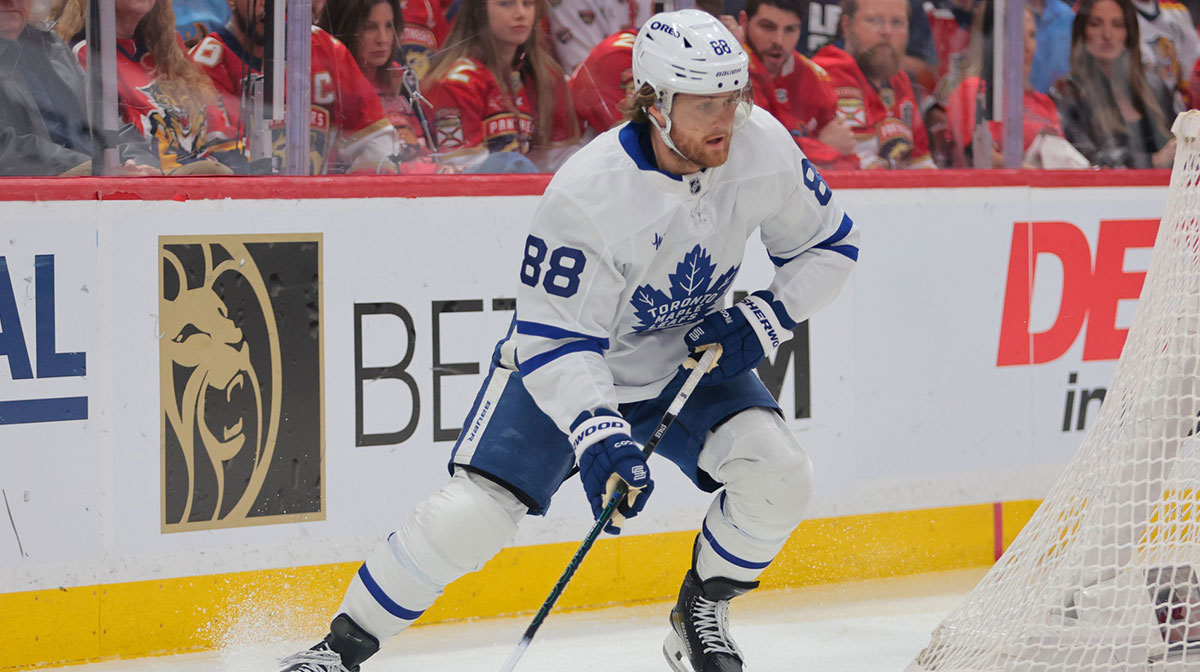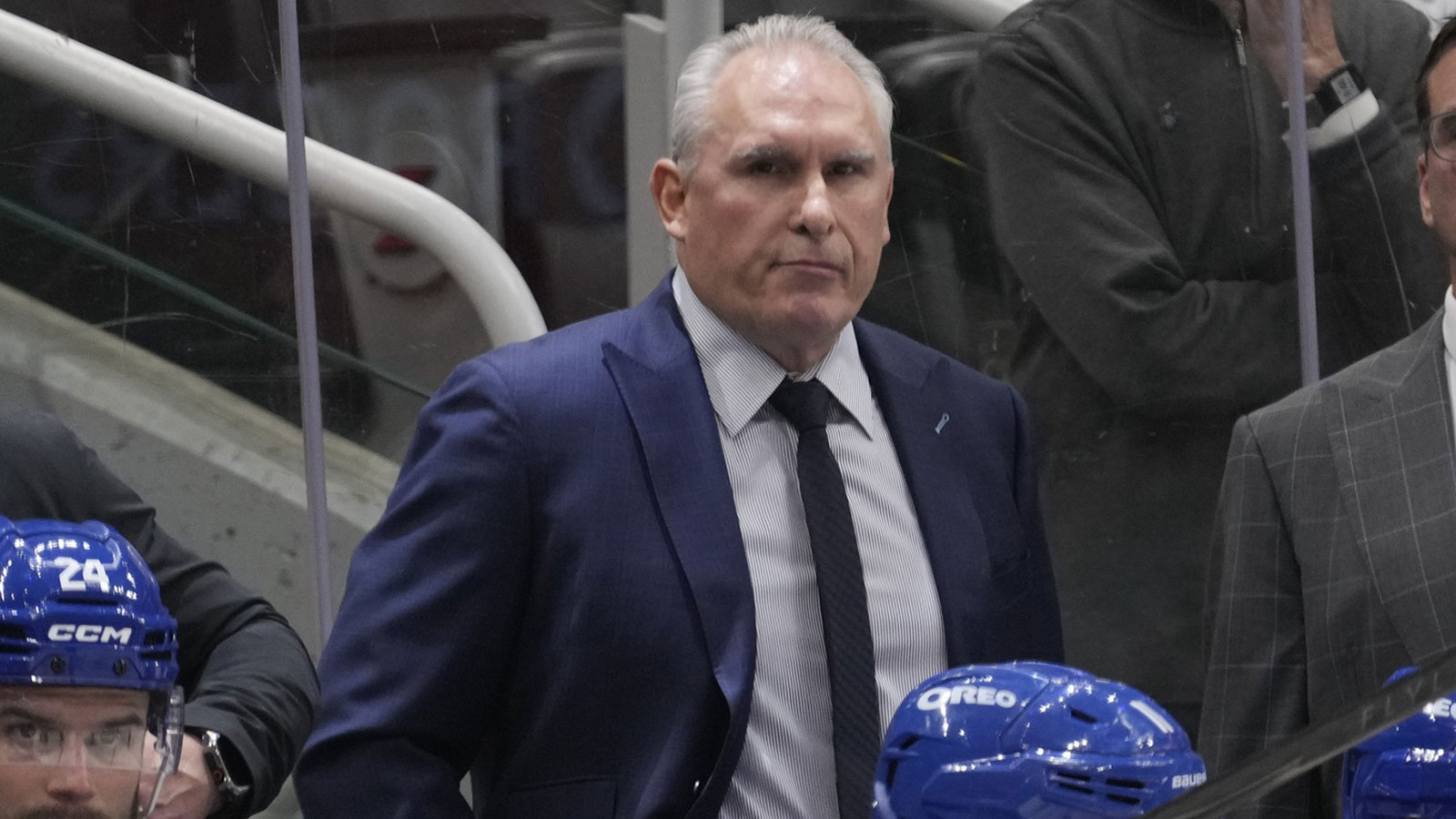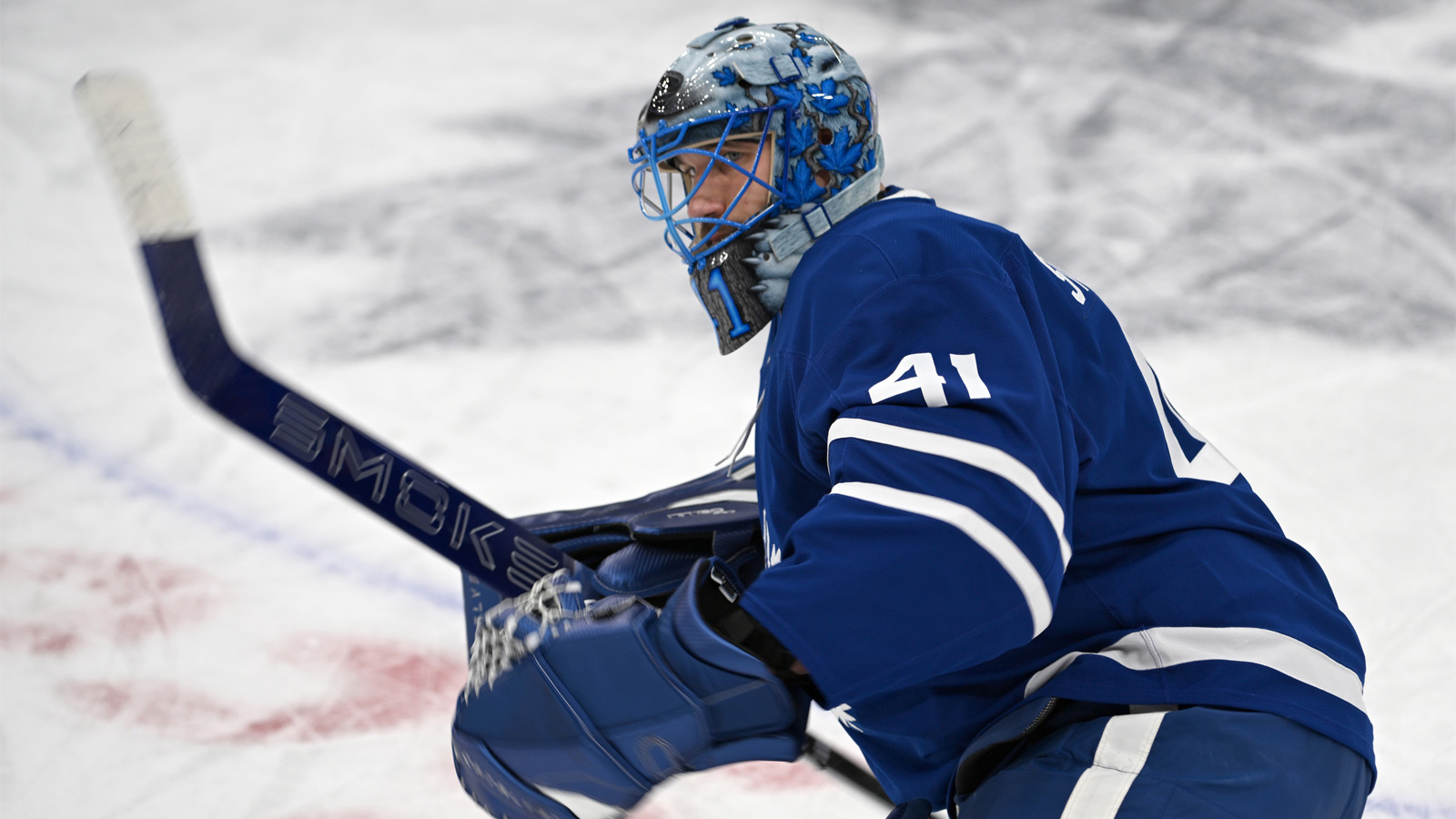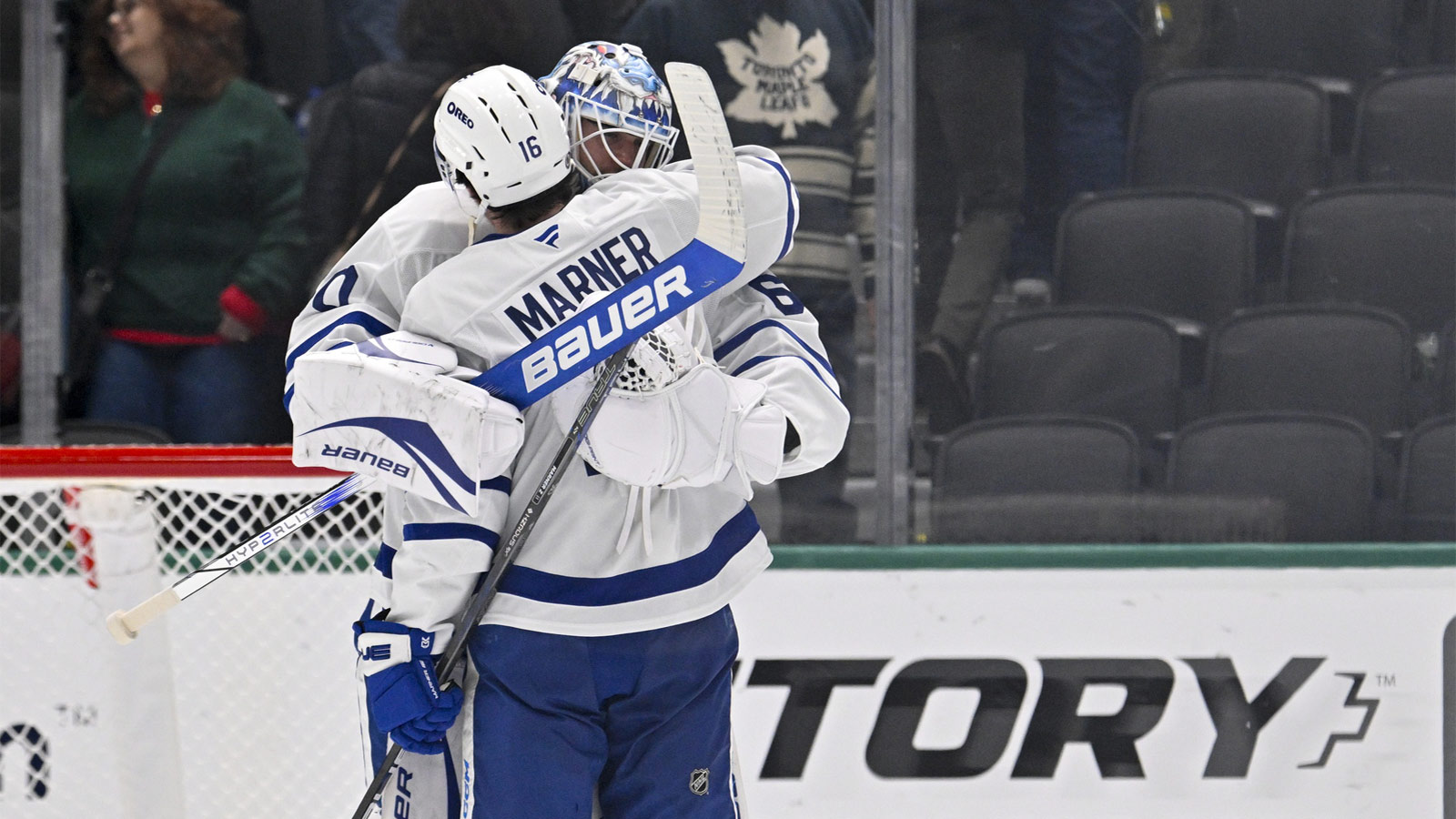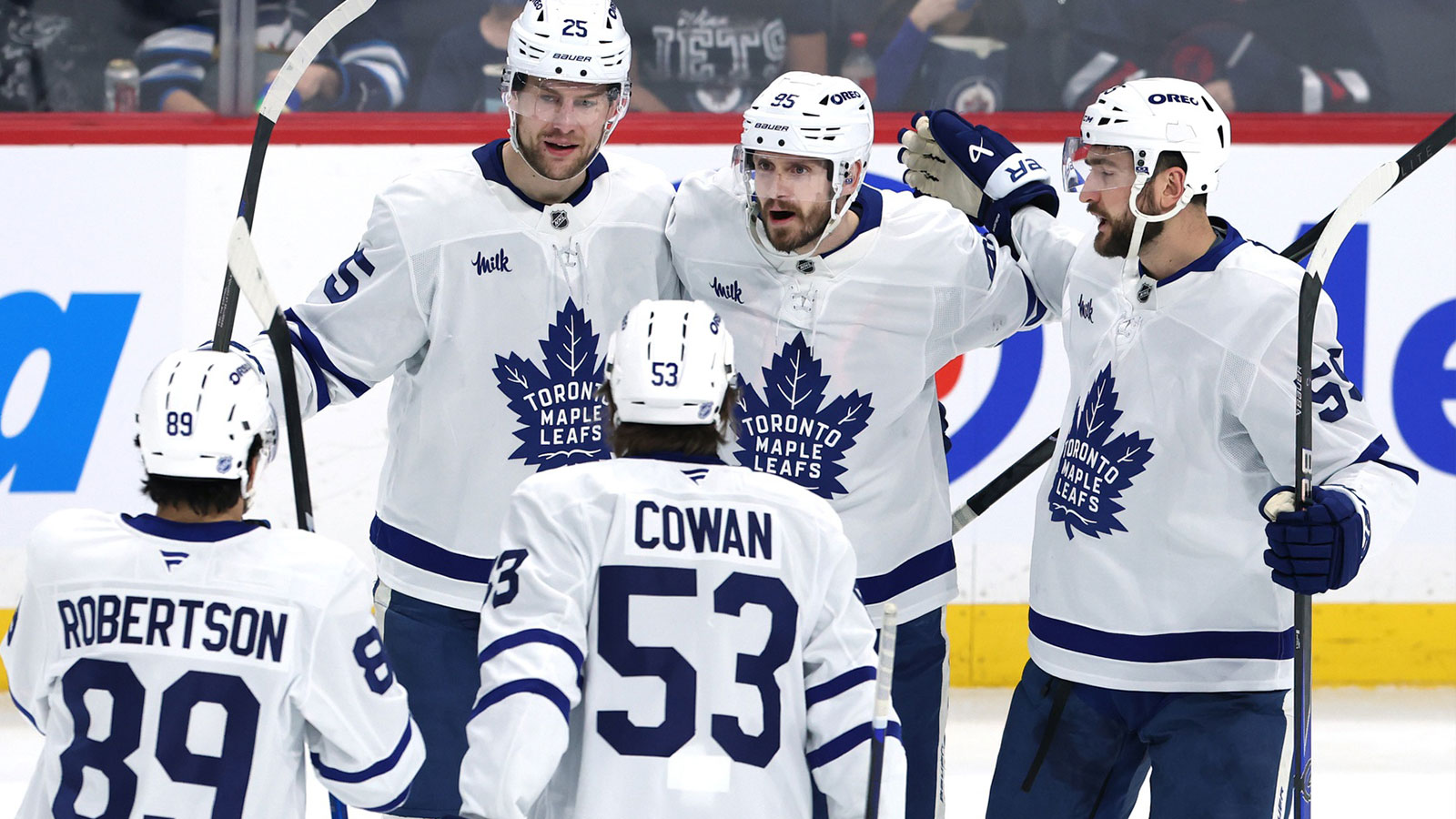The Toronto Maple Leafs are out of the Stanley Cup Playoffs once again. Auston Matthews, Mitch Marner, and their teammates turned in potentially its worst performance in a Game 7 in recent memory on Sunday night. The Maple Leafs lost 6-1 on home ice to the Florida Panthers, watching as their South Florida rivals went to their third straight Eastern Conference Finals.
Following this contest, players from both sides sparked the rebirth of a recurring discourse around the Maple Leafs. There is this idea that it is hard to play hockey in the city of Toronto. That representing the Maple Leafs on the ice brings a unique set of challenges that aren't present in other fanbases or markets. Panthers head coach Paul Maurice — who previously coached Toronto — discussed this sentiment after Game 7.
“What's great for the league is hard for the Toronto Maple Leafs and their players. The passion for the Toronto Maple, the scrutiny these men are under is why everybody gets paid so much. It's a driver,” Maurice said, via Sportsnet's Luke Fox. “There's a cost to it — for them. There's a challenge. Yeah, you can hit one out of the park here, and then you're never buying lunch for the rest of your life, right? But there's a cost for these guys, for their families.”
This narrative of an inherent pressure on those playing for the Maple Leafs falls flat, however. While there are certainly difficulties associated with playing in this market, there is nothing unique about the pressure they are under. And the backlash these players face is a result of their own failure.
Maple Leafs have failed for the better part of a decade
The idea that fans should lay off the players in the wake of this sort of loss could be understandable to some extent. For instance, if this Maple Leafs team were in the midst of its first playoff run. However, this is far from the case. Toronto has had its current core for the better part of 10 years. And they have little to show for it.
Toronto drafted Morgan Rielly in 2012, William Nylander in 2014, Marner in 2015, and Matthews in 2016. In 2018, they signed John Tavares. These five players have made up the team's core since at least 2016. The team has made the postseason in each of the last nine seasons. However, they have two series victories and have never advanced past the second round.
It isn't as if these aren't talented players. No player has more goals than Matthews over the last two seasons. Marner is a top-15 player in some very important categories. Rielly has been a steady No. 1 option for a long time. Tavares has had some ups and downs, but he has turned in some big-time performances. Nylander caught fire this postseason to help the Maple Leafs advance.
However, as the stakes increase, this core seems to shrink. Marner has never scored a goal in a Game 5, 6, or 7 dating back to 2019, according to former Sportsnet producer Drew Livingstone. He and Matthews have combined for just five points in Game 7s dating back to 2018, according to Sportsnet.
It's one thing if these players were young and just getting their feet wet. Fans didn't flip out in 2017 when they lost to the Washington Capitals for this exact reason. However, the team has continuously failed to rise to the occasion. At some point, the leeway among fans and media alike has to run out.
Unique circumstances put spotlight on Toronto's core

Pressure, criticism, and backlash are not unique to the Toronto Maple Leafs. What is unique to this team, however, is its roster construction. The Maple Leafs have four players—Marner, Matthews, Tavares, and Nylander—under contract for more than $10 million a season. No other team has this many players making eight figures.
This does two things. First, it sends a drastic signal to the fanbase that this core has the full support of the front office. This creates a ton of expectations for this core in and of itself. Only 15 players in the NHL carried a cap hit of at least $10 million in 2024-25, according to PuckPedia. Making this sort of money means something.
It also changes how the front office approaches roster building. The core is set at the top of the lineup. And it's often hard to move these sorts of contracts. Especially given that the NHL went through a flat cap era during COVID. As a result, the core stays constant. The secondary pieces, though, are constantly changing.
The Maple Leafs have signaled that this core is the team's driving force. Moreover, they have signaled that their goal is to win a Stanley Cup. Given that they are trying to win the Stanley Cup, anything short of that will inherently draw criticism. Especially if these failures have occurred nearly every season for 10 years.
Toronto is not hockey's only pressure cooker
Maurice's earlier quote does contain a kernel of truth. The former Maple Leafs bench boss is right in highlighting the passion of this fanbase. Toronto fans may be some of the most passionate fan bases in the league. And yes, this can create a hectic environment at times. But this can also apply to other markets.
Take the Detroit Red Wings, for example. Detroit is an Original Six franchise like the Maple Leafs. Toronto and Detroit are two of the most storied franchises in the sport. In the mid-1990s, they christened the city of Detroit “Hockeytown” in part due to the passion the fanbase showed.
But when the Red Wings failed to win the Stanley Cup in those early years with Steve Yzerman, no one said the fans were too hard on the team. No one said the Red Wings media was too critical of the players. Even now, when Detroit hasn't made the playoffs since 2017, no one looks at Detroit as a hard place to play.
It's interesting because Detroit fans aren't too different from Maple Leafs fans. The Red Wings booed their team off the ice during poor performances in big situations. Fans dread the month of March because the team has collapsed in March in each of the last two seasons. Fans have called for certain players to leave, and the media questions the decisions made by Yzerman — now the general manager of the team.
Detroit is not the only fan base with a passionate fan base and engaged media. Any Original Six team has this. As do teams like the Edmonton Oilers, Vancouver Canucks, and Pittsburgh Penguins. And this is worth pointing out since Marner is a free agent next season. Some believe he will thrive outside of the Toronto pressure cooker. But if he signs with a Detroit or Pittsburgh, he is going to face a similar environment. The pressure won't go away.
Any pressure facing the team is of their own creation. It's their own failure to rise to the occasion and win in the big moments. The Maple Leafs have not won the Stanley Cup since 1967. And they won't do it any time soon, so long as fan frustration is repacked as some sort of unique challenge only endured by these players.











